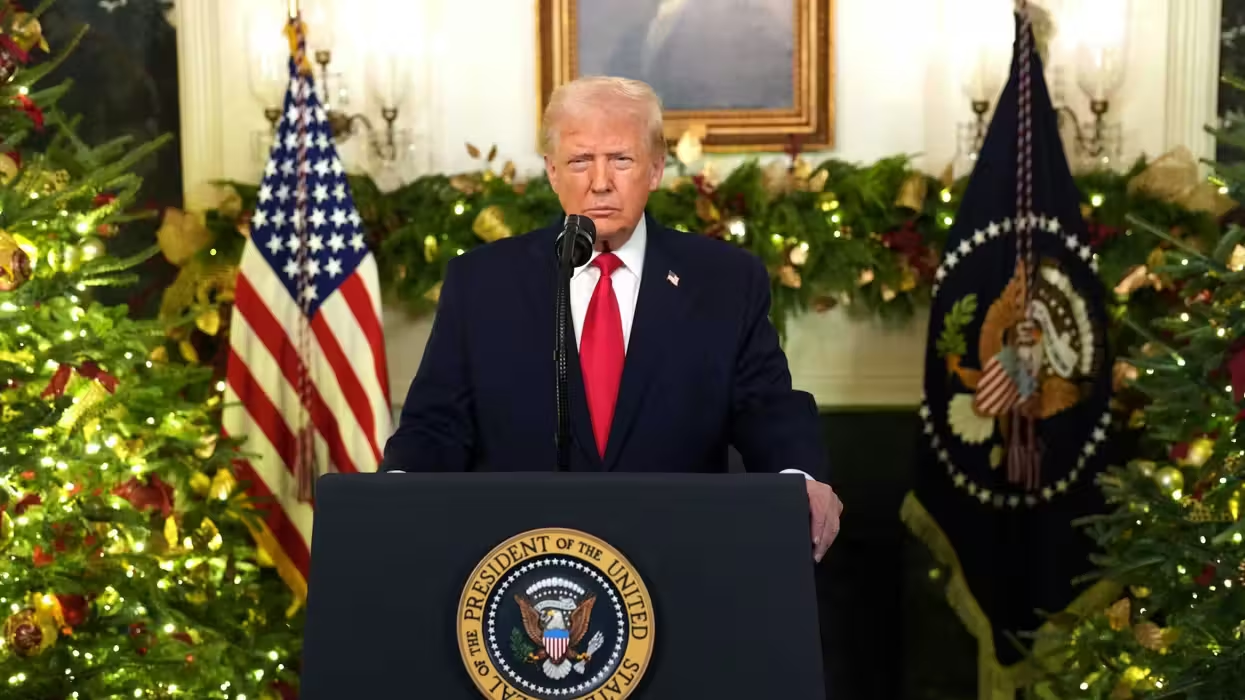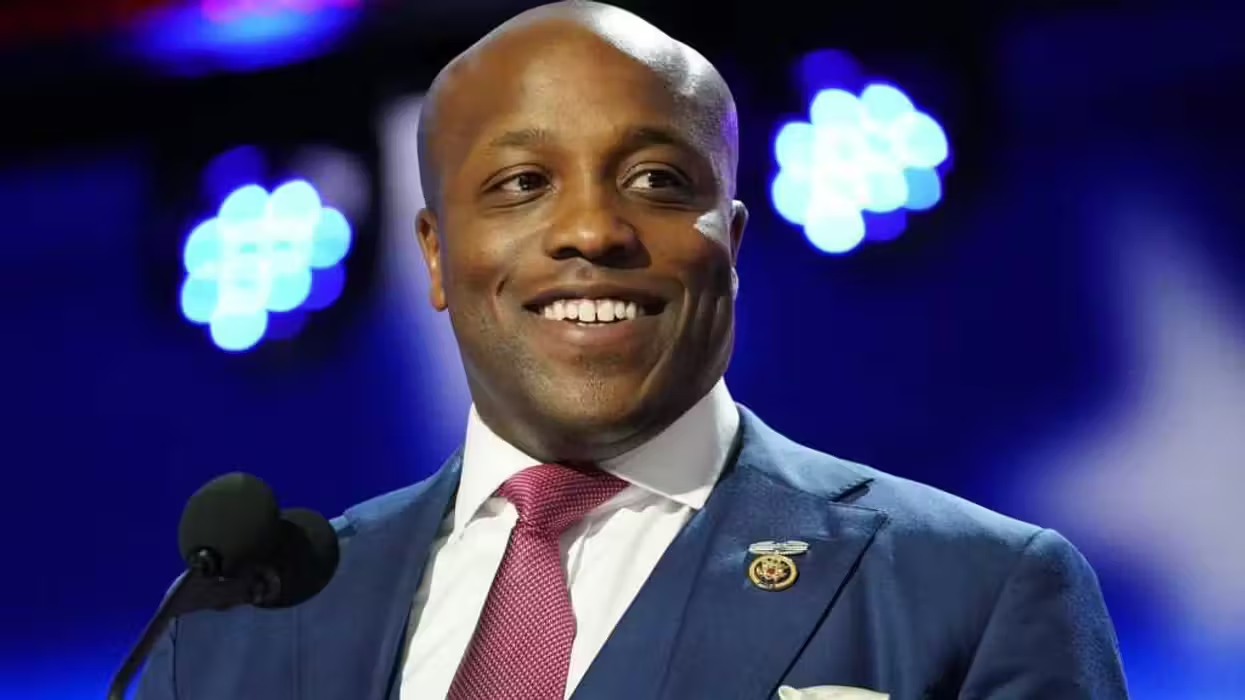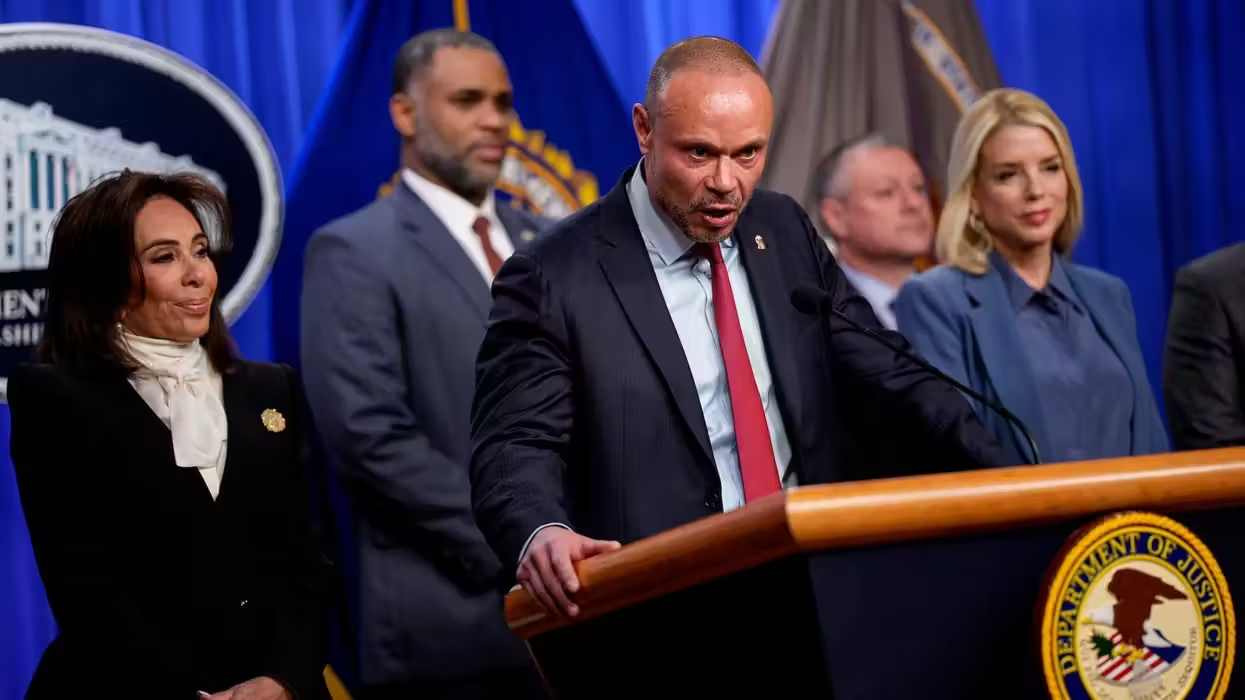
© 2025 Blaze Media LLC. All rights reserved.
Treasury Sec. Ready to Deploy 'Extraordinary Measures' as U.S. Hits Debt Limit (Again)
May 21, 2013
"We will not negotiate over the debt limit."
 Treasury Secretary Jack Lew. (Getty Images)
Treasury Secretary Jack Lew. (Getty Images)
The U.S. government on Sunday reached its borrowing limit -- again.
“After a brief hiatus, the nation’s debt limit has returned as a major hurdle for Washington to overcome, and one that will play a central role in fiscal fights heading into the fall,” The Hill reports. “Congress agreed to suspend the nation’s $16.4 trillion borrowing limit the last time they approached it, at the beginning of the year. But that suspension expired May 19.”
During the suspension, U.S. debt grew by an estimated $300 billion, putting the total at around $16.7 trillion.
“With the government once again operating under a borrowing cap, the Treasury is back to employing special measures to free up space under the limit,” the report notes.
“In a nod to how common debt-limit battles have become in recent years, Treasury Secretary Jack Lew told Congress Friday he was prepared to deploy the ‘standard set of extraordinary measures.’”
“He told congressional leaders that the Treasury is preparing to employ its extraordinary measures to free up room to maneuver under the cap, and gave a hint as to how long Congress could haggle over raising it before a damaging default — after Labor Day,” the report adds.
Lew’s letter also made it clear that the Obama administration is not interested in bargaining over raising the debt ceiling
Here’s a full copy of his letter:
One of the “extraordinary measures” at Treasury's disposal involves the issuance of State and Local Government Series securities (SLGS).
“State and local governments buy the securities as they work to refund municipal bond deals,” The Hill explains.
However, issuing those securities affects the debt limit bottom line, so Treasury would put the brakes on that until further notice.
“The Treasury also has the power to halt new investments in federal employee retirement funds, which would be reimbursed once the limit is hiked. It also can stop reinvesting in its Exchange Stabilization Fund used to buy and sell foreign currencies,” the report continues.
These options would be used to free up billions of dollars to supposedly give U.S. lawmakers more time to come to an agreement over the debt limit.
Of course, that all depends on whether Congress can agree on a plan – and whether the White House will play ball.
"We will not negotiate over the debt limit," Lew wrote in a letter sent to Congress Friday. "The creditworthiness of the United States is non-negotiable. The question of whether the country must pay obligations it has already incurred is not open to debate."
We'll see where this goes from here.
--
Follow Becket Adams (@BecketAdams) on Twitter
Featured image Getty Images.
Want to leave a tip?
We answer to you. Help keep our content free of advertisers and big tech censorship by leaving a tip today.
Want to join the conversation?
Already a subscriber?
more stories
Sign up for the Blaze newsletter
By signing up, you agree to our Privacy Policy and Terms of Use, and agree to receive content that may sometimes include advertisements. You may opt out at any time.
Related Content
© 2025 Blaze Media LLC. All rights reserved.
Get the stories that matter most delivered directly to your inbox.
By signing up, you agree to our Privacy Policy and Terms of Use, and agree to receive content that may sometimes include advertisements. You may opt out at any time.






